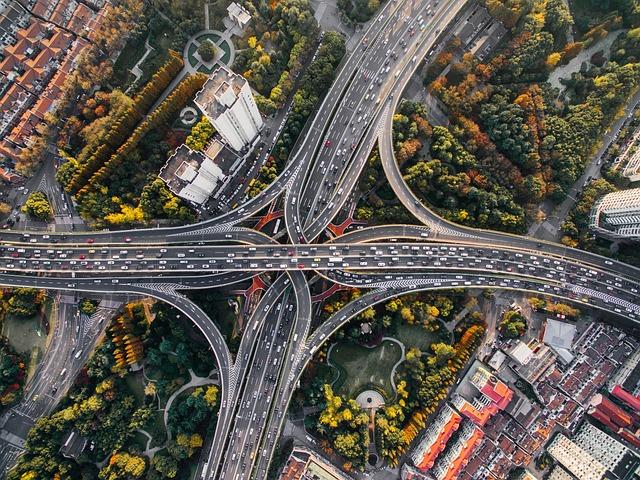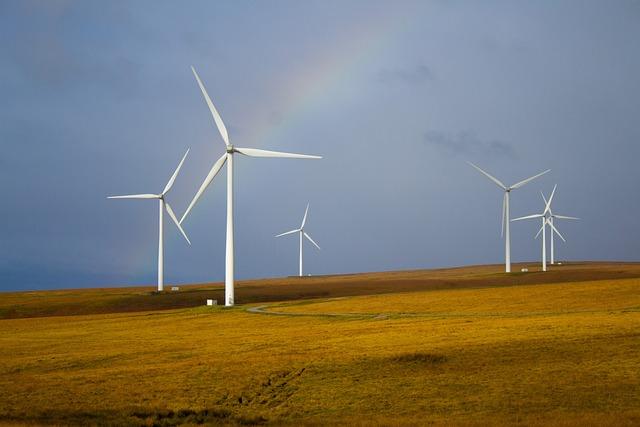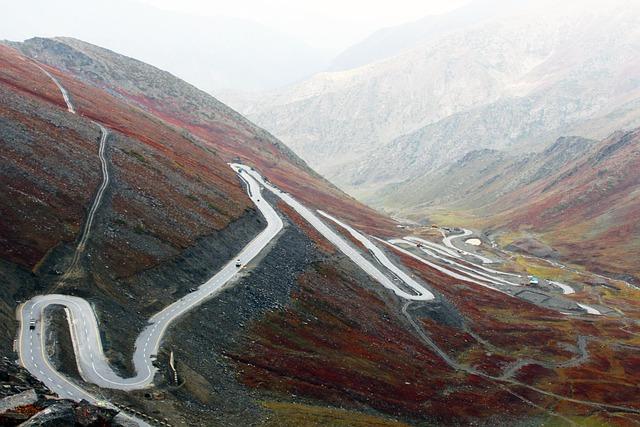In an era where urban landscapes are rapidly evolving and technological advancements shape the very foundation of nations, Pakistan stands at a crossroads. The infrastructure that once served as the backbone of this vibrant country now grapples with the challenges of an escalating population, climate change, and shifting economic demands. As bustling cities and rural areas alike seek modernity, the crumbling roads, outdated transport systems, and inadequate utilities tell a tale of urgency and opportunity. This article ventures into the complexities of revitalizing Pakistan’s infrastructure, exploring the multifaceted challenges that hinder progress while proposing sustainable solutions that can pave the way for a brighter future. From innovative engineering practices to community-driven initiatives, the path to a resilient infrastructure is fraught with obstacles yet illuminated by the potential for transformative change. Join us as we navigate this pivotal journey, analyzing the past, confronting the present, and envisioning a robust framework for generations to come.
Assessing the Current State of Infrastructure: A Comprehensive Overview
Pakistan’s infrastructure landscape is a mosaic of potential and challenges. Major urban centers such as Karachi and Lahore bear witness to crumbling roads, outdated public transportation systems, and inconsistent power supply, which directly impact the quality of life for millions. Meanwhile, rural areas suffer from a stark lack of connectivity, leaving communities isolated and hindering economic growth. Key components such as transportation, energy distribution, and water management systems are in dire need of upgrades, making it imperative to evaluate current initiatives and their effectiveness. Addressing these systemic issues demands a collaborative approach, wherein government bodies, private enterprises, and civil society unite to foster sustainable development.
To effectively tackle these infrastructural woes, a multifaceted strategy is essential. Firstly, an increased investment in modern technologies can lead to increased efficiency in service delivery. Secondly, emphasis on public-private partnerships (PPPs) will harness private sector innovation and funding. Additionally, ongoing community engagement is crucial for ensuring that infrastructure projects align with local needs. Below is a simple overview of some essential areas for focused improvement:
| Infrastructure Area | Current Challenges | Proposed Solutions |
|---|---|---|
| Transportation | Congestion, outdated public transit | Invest in metro systems, improve road networks |
| Energy | Load shedding, reliance on fossil fuels | Expand renewable energy sources, enhance grid reliability |
| Water Management | Pollution, inefficient distribution | Implement modern filtration systems, promote conservation |

Identifying Key Challenges: From Funding Gaps to Technological Constraints
Revitalizing infrastructure in Pakistan requires a keen understanding of various challenges that hinder progress. One of the most significant obstacles is the funding gap that persists in multiple sectors, ranging from transportation to energy. Government allocations often fall short, while private sector investments are hampered by regulatory complexities and a lack of confidence in long-term returns. This financial shortfall means that many critical projects either stall or operate well below their required capacity. In addition to this, there are issues of corruption and mismanagement, which further drain resources and delay essential maintenance and upgrades to existing infrastructure.
On the technological front, constraints in innovation and adoption pose serious threats to infrastructure development. Many projects are still reliant on outdated methodologies and equipment, which not only raises costs but also diminishes the quality and efficiency of constructions. The integration of smart technologies and advanced construction practices is lagging, often due to a lack of skilled labor and inaccessibility to cutting-edge tools. Moreover, regulatory environments can inhibit the introduction of new technologies, which stifles the potential for modernization and sustainability. Addressing these fundamental issues is crucial for establishing a resilient infrastructural framework that meets the needs of the country’s growing population.

Innovative Solutions: Embracing Public-Private Partnerships and Green Technologies
Pakistan stands at a critical juncture, where the integration of public-private partnerships (PPPs) is transforming the landscape of infrastructure development. By leveraging the strengths of both sectors, countries can accelerate project implementation, share risks, and enhance resource allocation. These collaborations can lead to a multitude of benefits, such as:
- Increased efficiency: Streamlined processes and innovation-driven approaches can reduce costs and time frames.
- Access to capital: Private sector investment can fill funding gaps that hinder large-scale infrastructure projects.
- Enhanced service delivery: The competitive nature of the private sector promotes high-quality standards and accountability.
In conjunction with PPPs, green technologies must be embraced to ensure sustainable development. Innovating in areas such as renewable energy, waste management, and smart transportation can significantly mitigate environmental impacts while revitalizing infrastructure. Key advantages of adopting these technologies include:
- Reduced carbon footprint: Transitioning to renewable sources minimizes greenhouse gas emissions.
- Economic resilience: Sustainable practices encourage job creation in emerging sectors.
- Community engagement: Environmental initiatives foster local participation and support from citizens.
| Public-Private Partnership Benefits | Green Technology Advantages |
|---|---|
| Cost Reduction | Lower Emissions |
| Timely Delivery | Job Creation |
| Quality Assurance | Community Support |

Strategic Policy Recommendations: Building a Sustainable Framework for Future Development
To create a robust framework for revitalizing Pakistan’s infrastructure, strategic policy recommendations must focus on several pivotal areas. Firstly, investment in sustainable technologies is essential for minimizing environmental impact while enhancing efficiency. This can be achieved through:
- Encouraging public-private partnerships to share financial risks and innovate solutions.
- Incentivizing the use of renewable energy sources in infrastructure projects.
- Implementing rigorous standards for eco-friendly materials and construction practices.
Secondly, prioritizing community engagement ensures that the infrastructure developed aligns with the needs of the populace. This involves:
- Conducting comprehensive community assessments to identify local challenges.
- Facilitating regular forums for public input on proposed projects.
- Establishing transparent processes for project selection and monitoring.
A key aspect of these policy recommendations is the need for decentralized governance that empowers local authorities to make decisions tailored to their unique circumstances. Implementing this approach requires:
- Providing local governments with the necessary financial resources and autonomy.
- Training officials in best practices for infrastructure management and sustainability.
- Monitoring and evaluating local projects to ensure adaptiveness and continuous improvement.
To visualize the pathways, the following table illustrates the interconnection of strategies and desired outcomes:
| Strategy | Desired Outcome |
|---|---|
| Public-Private Partnerships | Resource Sharing & Innovation |
| Community Engagement | Responsive Infrastructure |
| Decentralized Governance | Localized Solutions |
The Conclusion
As we stand at the crossroads of potential and progress, the revitalization of Pakistan’s infrastructure presents both formidable challenges and a canvas for innovative solutions. The road ahead may be punctuated with hurdles—budget constraints, bureaucratic red tape, and the pressing need for sustainable practices—but it is also an opportunity for collaboration, creativity, and a renewed commitment to the nation’s development.
By embracing a multi-faceted approach that involves public-private partnerships, leveraging technology, and prioritizing community engagement, Pakistan can not only modernize its infrastructure but also lay the foundation for a resilient future. As we navigate this complex landscape, it is essential for stakeholders at all levels to work in harmony, fully aware that every bridge built and every road paved is not just an investment in infrastructure, but a step toward empowering citizens and fostering economic growth.
The revival of Pakistan’s infrastructure is not just a matter of bricks and mortar; it is about building the very framework that will support the dreams and aspirations of millions. As we look to the future, let us be guided by a vision that embraces inclusivity, sustainability, and innovation—ensuring that the infrastructure we develop today serves as a catalyst for a brighter, more connected tomorrow.



